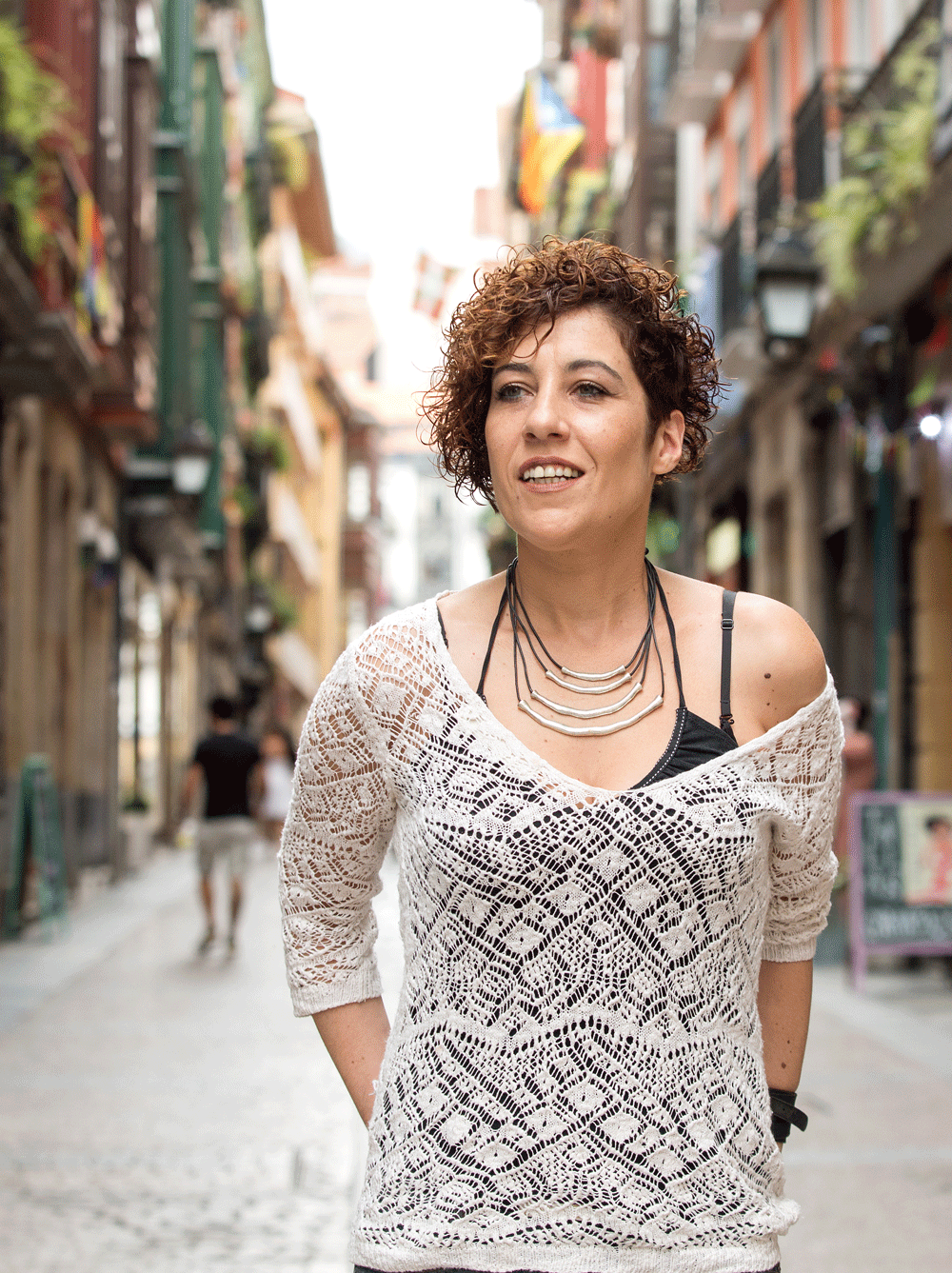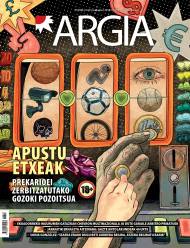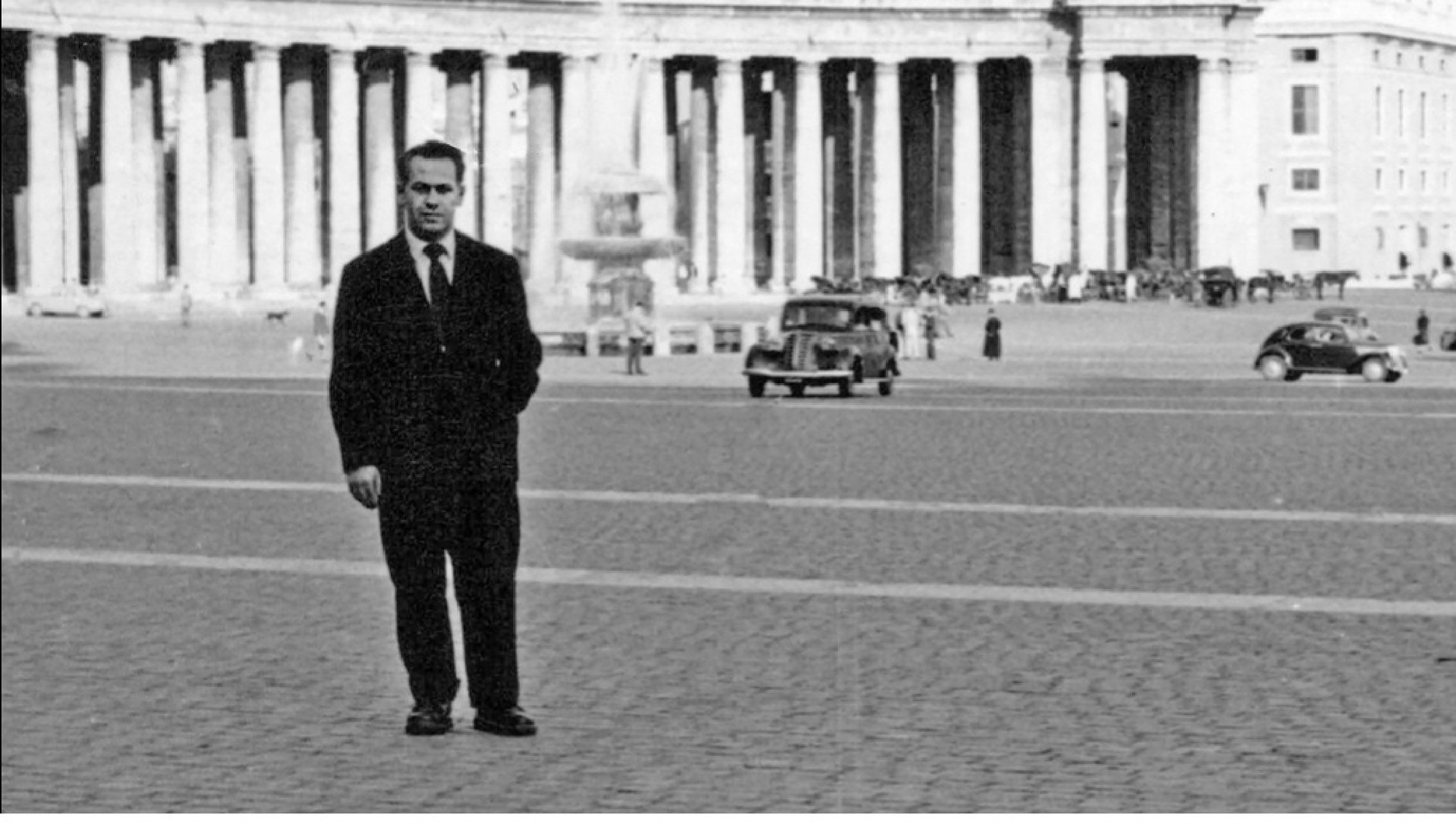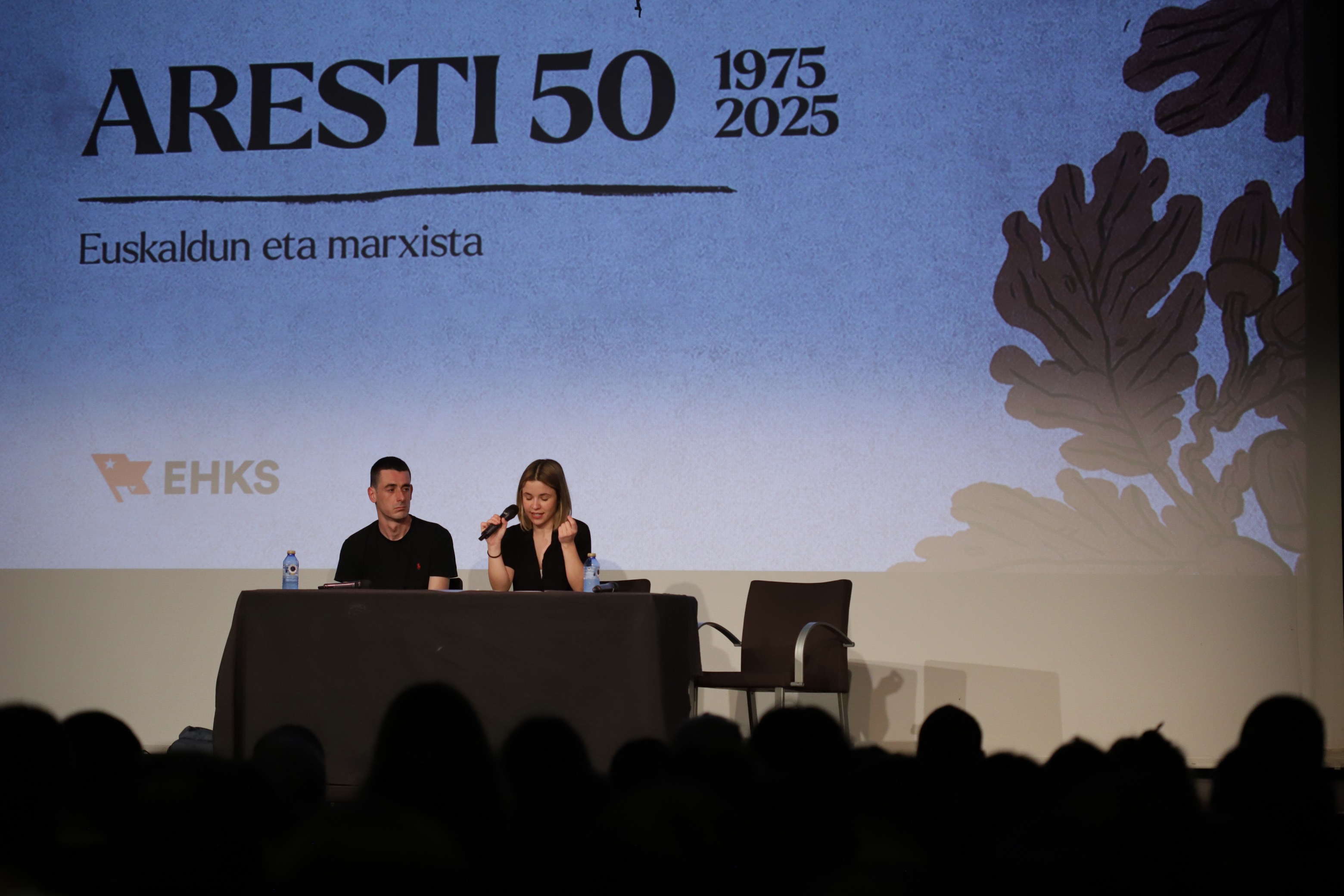"We're never like we think or when we write."
- Barakaldo 1977. Studied Basque Philology. She's been responsible for communication from LAB, a humble working woman. As a writer, he has worked the novel and the poetry. After thirteen years of silence, Erreka Haizea (Susa) has been in charge of opening the debate space at the Euskalduna Palace. It's not easy to classify. In addition to writing the program that brings the wind of the river, the writer has written about power, silence and death, in very brief texts. How the pieces of the book, such as the answers of this conversation, punctures.

“They used to ask me why I had stopped writing. Few could understand that I could not forgive literature that it did not heal from reality,” he wrote. To what extent has this book healed you?
This has not healed me of reality either, but after so many years I have taken a new state of mind with regard to life. When you start working on a new phase of life, you think it will give you something else or it will change you. Literature helps to get into reality, but thinking that making literature makes you someone else is not real. These are guesses of youth built on your life. Then you realize it's not like that. After doing a diligence, because of the conditions of life, you realize that there will be no revolution within you, and that you have to start your life differently.
Do you mean, in addition to literature, everyone has to work their critical spirit? In personal life and in political militancy?
In a way. Politics, trade unionism and militantism are important aspects of my life. This feeling also appears in the book, that of having to go ahead, go and look for something. People are striving for it, but it is never enough. Despite the constant search, the feeling of not being enough is with us. Because we're never how we think or think, or when we write.
“I am a woman and I have made a conscious choice, to reflect on the status of a woman”
“Am I writing?” she asks, is evident in her book.
The usual dichotomy, isn't it? Duality between the person and the character. In all the books there is that, not only in the environment in which you describe it, but you invent a character and you can't stop being present. Your feelings, your thoughts, because you've gotten into the skin or the inside of that character. Anyway, Erreka haizea is not a novel, it's not fiction, it's something else. The person appears more than the character. Normally when you do literature, you don't write your day to day.
It is not easy to classify the book as a literary genre. How would you define it?
It's a gender like me, confusing. I find it a little hard to keep attention in one thing, because ideas come from different parts of me, the book is the reflection of my personality. These are thoughts, in any case related issues. Without addressing these issues on multiple pages, these are pieces joined by different parts. That's my personality.
In the starting point he mentions the lights and shadows of Friedrich Nietzsche's Joyful Science essay. This quote is, in a way, the one that shapes the book.
I read this book again during the writing process: “How good the quote to take her to the book, to make known what the book is,” I thought. This book is a collection of quotes, pieces or notes from the beginning to the end. It was a coincidence, but literature or a book has a lot of it.
Dedicated to “Marian de la Fuente, our Marijaia”. That's no coincidence.
It's destiny. He died in Marian when he was about to take out the book. For me and her environment has been a very important person. One of those who has worked a lot of their lives. There are many, but as their names do not appear anywhere, as in the case of Mary, they leave without pain or glory. That has to give us what to think. They're often women. Then we have to do feminist archaeology. For example, today it's happening with the women they teach. We are recovering people who have been important to the people or to the Basque Country. “Marian is one of those names that is going to be lost,” I wonder. It was very important in the Basque world, it did a great ant job. Fredi and Xabi Paia remembered Kanpomartxo in verses. Thank you, too.
The book is written by a woman. In contrast to man, I mean.
I'm a woman, and I've made a conscious choice, to reflect on the status of a woman. Draw attention to this issue and make the point. Do not hide anything, do nothing neutral, do something unequal, so to speak. Well, I did it to the extent and in the way I can.
He has written in silence: what needs to be said and what needs not to be said ...
The issue of silence is of particular interest to me. In addition, I have addressed it from various quarters: the need to remain silent as a woman, to let man speak, not to bother him. I have written that there has to be a certain modesty. On the other hand, the silence of the family. A harsh silence of several decades after the civil war. How have all of them influenced us! Because we've been left without history, it's the story of the losers. After the wars, some people know something about their family, but the losers don't know anything. You know you have a story, of course, because you're alive, you have a father and a grandmother, your parents, but you carry a kind of phantom, a kind of silence. We have lived it among the sisters. We've always built a character looking forward, not looking backwards. What traces it leaves! I am related to this need to look forward, to look for something, to seek a need.
“We
have to learn to look
at reality from another perspective”
Are we able to remember our past?
There are psychological and sociological difficulties. The worst are forced silences, not allowing around you to speak, silence. It cannot be counted, but what has been established from the outside. Although there are internal silences, you'd like to, but at the moment you can't say anything. But they can be given a solution. When silence is forbidden or forced, it is harder to remember the past.
In a passage of the piece with the mother, you've told the story of your discoverer. With humor. Serious stuff, but you've got a good mood. That reflection of your personality.
This piece has its ironic or ridiculous point, but it also has a deeper reading. When I had the first month, my mother told me that “it is important that a woman wash her panties well and with her hand.” That's been our education. There is or has been some mysticism around this issue that should not. It's a piece that indicates what our role has been.
You went to the nuns' school. They had a nun talking to you about masturbation.
Look, I was a good person, just one. In the system there is always an exception to confirm the rule.
There's Andoni's character. Former partner. Who is Andoni? Or did you guess it?
Everyone around me knows who it is. Of course, I haven't put it all, I've standardized your face. But if you have to move something out of our interior, you have to do it.
What did he tell you?
I asked him not to give up. I do not know if you have read it. I don't want to talk about that. I have already told you that I am not ashamed, but talking about it makes me ashamed.
“Those who have been my cancer have given me a lifelong pain,” he says.
Some passages are excessively fearful or baffling. Others can give you what to think. They may be pieces to look at life from another point of view, to bring us closer to different themes. I have tried, at least, to reflect or approach these issues. I've written about death or suicide, recurring issues, but I've written the book in very difficult times.
Wounds do not heal without experiencing the geography of pain. Did you get a thorn out?
If you make an effort, you take thorns. There are several philosophical sections, but I have also tried to approach sociology. I'm very interested in the behavior of the people around me. These often appear, especially the behavior of people in the group and power relations. How you see power relationships, how you exercise them sufres.Si, you draw conclusions. Writing brings you closer to certain conclusions, writing is also doing that exercise.
Have you ever felt the power of your environment in unionism?
Don't believe it. Of course, there are also stratifications. But above all in the book I am referring to my daily life, to my family, to the time of the past school, to that of the “friends”, in quotation marks. They're often more violent than those at work. In any case, the person has been the basis of the reflections, not the man or the woman in particular.
“You feel there’s something weird about the identity you’ve developed, you’re from here, but nobody
is from here, everyone is from somewhere else.”
He has also written about the Basque identity. If you're from Barakaldo! What is external to be from here?
There are many Basque identities. Over the years, identities have been adapting. We are children of a great wave of immigrants, we occupy a people that was ours. In our case, Barakaldo. When I was a kid, we lived 150,000 people, and almost nobody was from there. You feel that in your identity there's something weird, you're from here, but nobody is from here, everybody is from somewhere else. Or he wants to be from one place, to have roots… In the streets where we were born and lived we had some acquaintance. And what? It is the area that has made us. The environment we had lived in was a new people, who did not belong to anyone. That was the way I became Basque. Of course being Basque is something else.
How did you regain consciousness of the Basque?
Well, though it lies, in a rather natural way. If you're from the family on the left and from here, that's what has to give you the way of being. Of course, there are two levels: first to become Basque and then to be Basque. It's different. There are many ways of being Basque, but the only way of being Basque. I mean, living in Euskera. Because that opens up a world, another world in the Basque Country. Without Euskera you can never reach the Basque world. Only through language can you receive a culture, if you don't stay in folklore. In Barakaldo it could not be otherwise.
Taking into account the book quotes and references of other thinkers, what is your opinion of plagiarism?
It is a plagiarism if you press “Ctrl + C” on the computer keyboard, this is a gross plagiarism, a copy. If you feed on the book you're reading, take an idea and create another one, that's not plagiarizing. If not, where will you base yourself? To start with, whatever you receive in your experiences, you believe it and reinvent it. Literature and any job creation is that, not just create, but recreate. A union colleague often tells me: “Plagiarism is a complete art.” He usually makes signs of the union. I mean, where do we get ideas from? You take each other's ideas and create something else, without copying.
Can we say that he has returned to the literature?
Yes. At the beginning of the interview, we talked about saving ourselves from reality. It may be necessary to learn how to look at reality from a different perspective. Maybe it's a matter of reinventing yourself. I do not think anyone else can demand himself. I invent myself again.
Erreka haizea liburuaren azalean idazlearen eguneroko ingurua ageri da: erreka eta zubia. Lekeitio, Mendexa... Lea-Artibaitik datorren haizea, hor nonbait.
Zer deritzozu literaturaren inguruko bizipenari? Kazetarien aurreko aurkezpenak eta hitzaldiak aise daramatzazu?
Niretzat ez dira arazoa, ez lehen ez orain. Familian txikitatik esan didate jaio izan nintzela farandularako. Oholtza gainera igotzeak ez dit lotsarik eman inoiz.
Liburuak izan duen jarreraz zer diozu?
Ez da erraza jakiten zein harrera eduki duen. Inguruko jendeak irakurtzen du beti edo gehienetan. Eta liburu hau inguruko jendearentzat gogorra izan da, momentuan ez nintzen konturatu, ez baitut pentsatzen nire inguru-ingurukoek irakurriko dutenik, irakurle ezagun batek jasoko duenik. Aldion, batez ere nire inguruko jendeak leitu duela konturatu naiz, eta haietako batzuentzat eta niretzat ere gogorra izan da. Baina, oro har, jendeari gustatu zaio. Eta inportantea izan da, ni gustura gelditu naizelako. Prozesua amaitu, eta azken ukituak eman ostean, oso pozik geratu nintzen. Horrek ematen dizu pista bat, norberak badaki egin duena ondo dagoen edo ez, balekoa ote den. Tira, prozesu horren ostean, publikatzean berriz irakurtzen duzu, eta esaten diozu zure buruari: “Pasarte hauek nik idatzi ditut? Joe tia, zelako ideiak dauzkazun”.
Susa argitaletxean aldaketa izan da. Gorka Arreseren segidan, Leire Lopez Ziluaga da editore berria. Zer moduz?
Oso ongi. Hamahiru urteko isilpen osteko buelta izan da nirea. Leirerentzat hasiera izan da. Bere eta nire aldetik berezia izan da. Zirraragarria.
Now that everyone has become more Franciscan than the Pope, it’s worth remembering our unsurpassed classics. There was one in the 17th century, his grace was Arnaut Oienart. And since we can’t immerse ourselves in all his works, today we will praise O.ten youth in... [+]
Aurreko tertuliako galderari erantzuteko beste modu bat izan zitekeen, akaso modu inplizituago batean, bigarren solasaldi honetako izenburua. Figura literarioaz gaindi, pertsonaia zalantzan jartzeko, edo, kontrara, pertsonaiaren testuingurua ulertzeko saiakera bat. Santi... [+]
Astelehen honetan hasita, astebetez, Jon Miranderen obra izango dute aztergai: besteren artean, Mirande nor zen argitzeaz eta errepasatzeaz gain, bere figurarekin zer egin hausnartuko dute, polemikoak baitira bere hainbat adierazpen eta testu.
Martxoaren 17an hasi eta hila bukatu bitartean, Literatura Plazara jaialdia egingo da Oiartzunen. Hirugarren urtez antolatu du egitasmoa 1545 argitaletxeak, bigarrenez bi asteko formatuan. "Literaturak plaza hartzea nahi dugu, partekatzen dugun zaletasuna ageri-agerian... [+]
1984an ‘Bizitza Nola Badoan’ lehen poema liburua (Maiatz) argitaratu zuenetik hainbat poema-liburu, narrazio eta eleberri argitaratu ditu Itxaro Borda idazleak. 2024an argitaratu zuen azken lana, ‘Itzalen tektonika’ (SUSA), eta egunero zutabea idazten du... [+]























